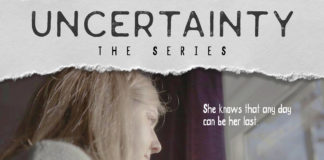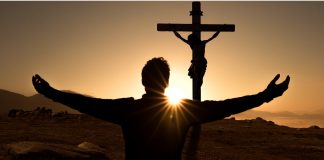Incurable faith
If we take an honest look around us and within ourselves, we discover that the gulf between the mentality of those who choose prayer over medical treatment and the essence of the Christian mindset is not as deep as it seems. But it remains a gulf nonetheless.
Faith that survives unanswered prayers
The greatest tragedy of life is not unanswered prayer, but unoffered prayer. – F. B. Meyer
Christ in them
I notice people, and passionately collect their stories. My favourite stories include those small cracks that allow one to peek inside another soul, those moments when their voice is almost imperceptibly altered, the eyes light up for a reason I do not know, and their gestures are unexpected.
The luxury of knowing why
Nothing can prepare us in advance for the suffering we will experience in this life. But even knowing this, we often remember with guilt the moments of blissful ignorance we had before suffering hit us.
A slice of heaven
Several years ago, I had the opportunity to tour south Te Waipounamu (the South Island of Aotearoa New Zealand). Flying first into Invercargill, I made my way north, excitedly anticipating iconic tourist spots such as Queenstown, Milford Sound, Wanaka and more. However, on the way, the sleepy town of Te Anau caught me by surprise, captivating me in a way that I didn’t...
We are more than we can easily explain
Suppose I leave the window open then leave home. A stack of banknotes can be seen on the table through the open window. An individual walking down the street notices the opportunity, thinks for a while, but decides to move on. Why would a man who has the opportunity to steal decide not to?
“Uncertainty: the series.” First episode of the international documentary online today
Live every day like it is your our last! Many use these phrase as a prop for their riskiest decision, or simply to justify a recklessly extravagant lifestyle. But what would our lives look like if we were to really live each day fully aware that it might be our last?
The love that whittles all my fears away
In a psalm that is worth reading on our coldest mornings and in our darkest nights, King David asked some rhetorical questions—“Whom shall I fear? Of whom shall I be afraid?”— questions which our contemporaries would not dare to answer.
Is faith reasonable?
Science and faith, as important tools in the knowledge process, are often perceived to be in a tense relationship with each other, because of the fundamentally different worldviews that characterize them. The implications for life’s big questions are obvious—and sufficient to rob someone of the comfort of indifference towards such high-stakes conclusions.
Jim Ayer | Forever a fisherman
Jim Ayer was, for most of his life, a slave to his own dreams—a fisherman of thrills and addictions. From when he was a child, he attached a ball and chain to each ankle, closed himself up in his own world, and threw away the key.
Ready for the return of Jesus
"Look, I am coming soon!" (Revelation 22:12) This is a promise whose fulfilment has been awaited by generations of believers who have pinned all their hopes on Jesus's return in glory. But what does "soon" mean? And what should we do to avoid being so preoccupied with the signs that we neglect other essential aspects of our preparation?
How authentic is my life?
When one pays attention to the finer details, any life story can be interesting. When you go into detail, any common or mediocre story that could have been summed up in only a few words, becomes a confession. I realise that my own story is no exception, although it has often seemed to me that I live a banal and predictable life.
The courage to believe
Who was Jesus really? While His historical existence is no longer questioned, many people believe that He was at best an exceptional personality of His time, a reformer whom His disciples later transformed into a deity. Why is neo-atheism concerned with promoting such a Jesus, and why is He nothing more than a new form of doubt?
Contemporary with Passion Week
In the frenzy that grips most Christians at this time of year, the coverage of Easter celebrations in the press is a good indication of how people prepare for Easter.
Beyond the fish and the fishing line
"Like slavery and apartheid, poverty is not natural. It is man-made and it can be overcome and eradicated by the actions of human beings… And overcoming poverty is not a gesture of charity. It is an act of justice." (Nelson Mandela)[1]


























